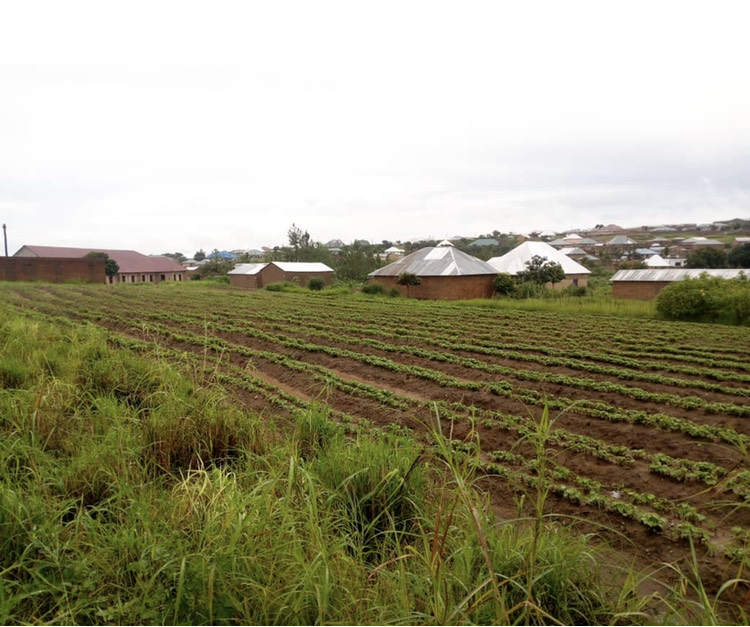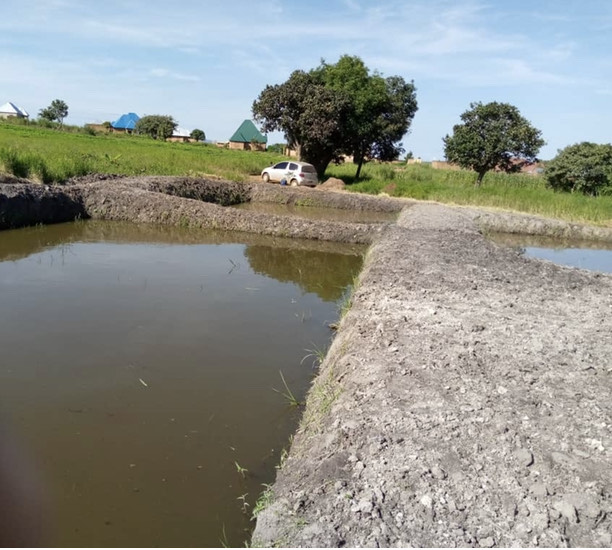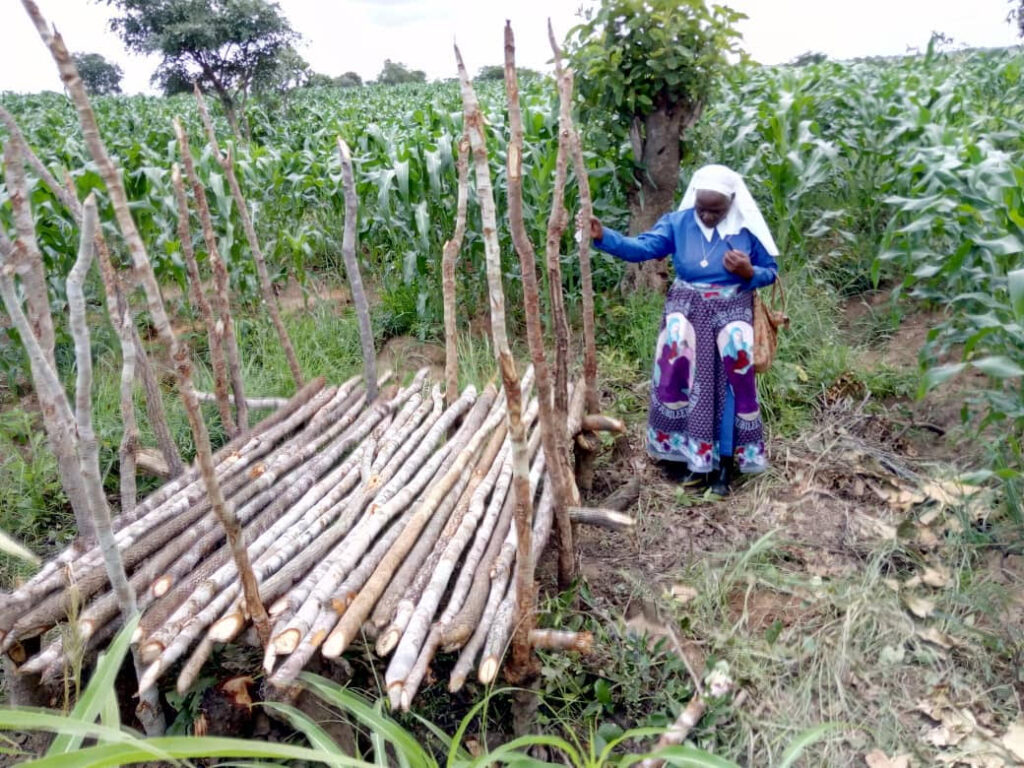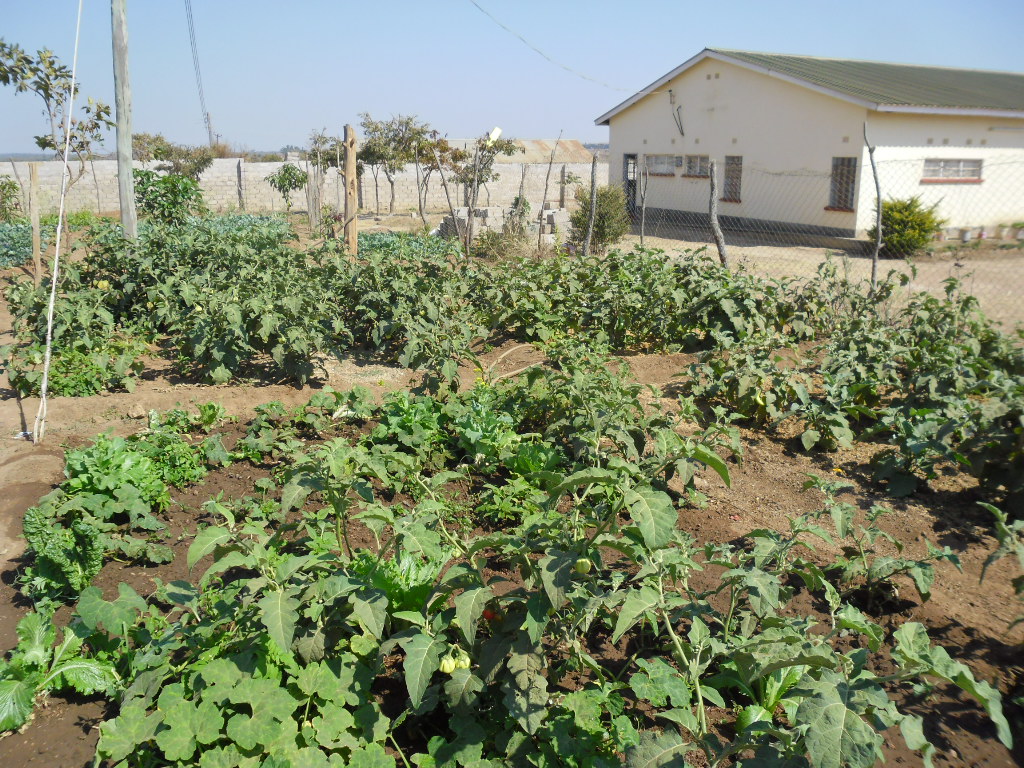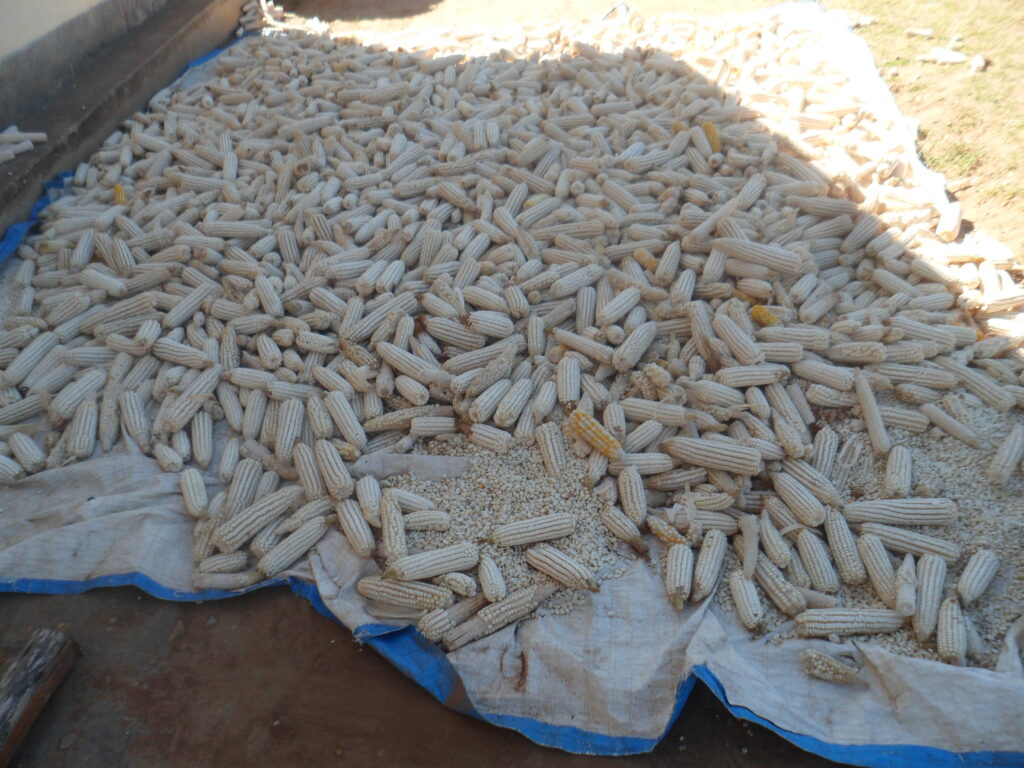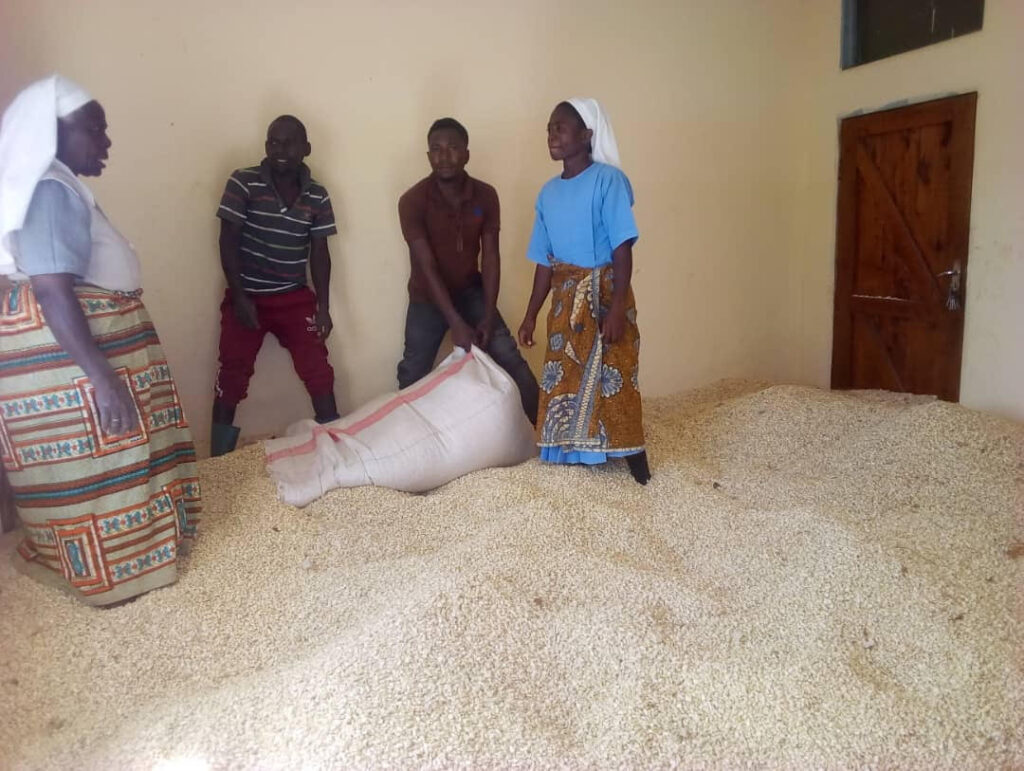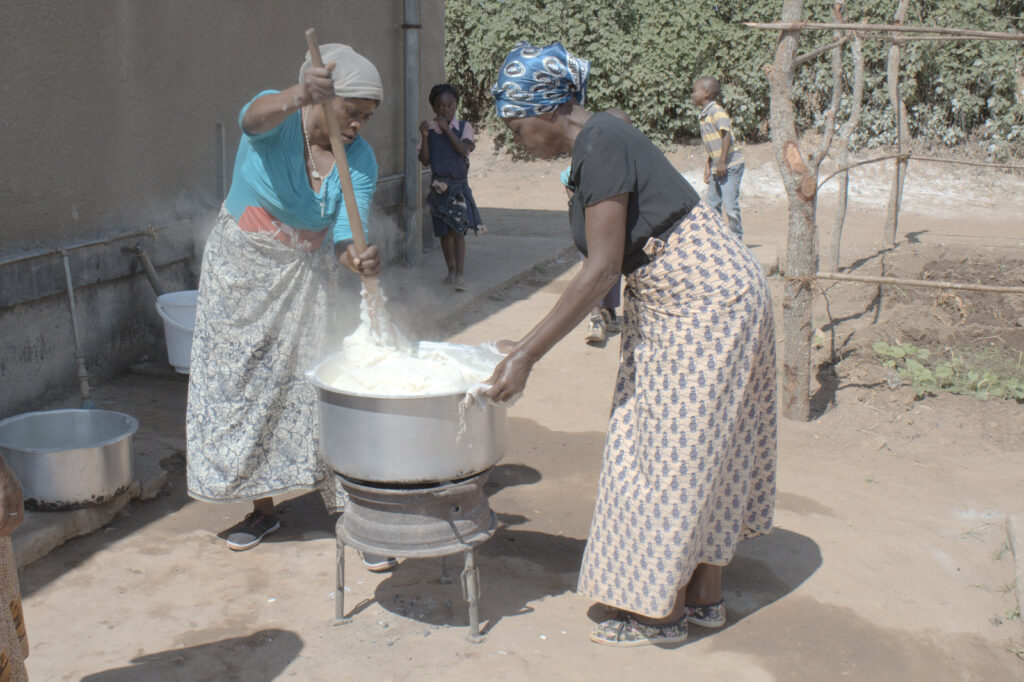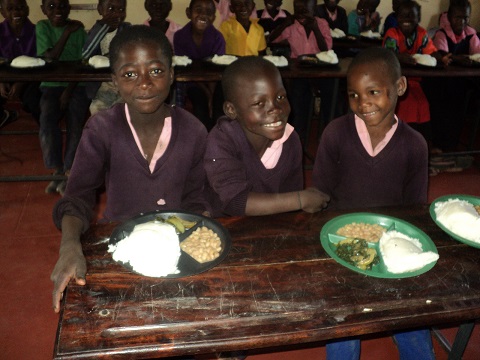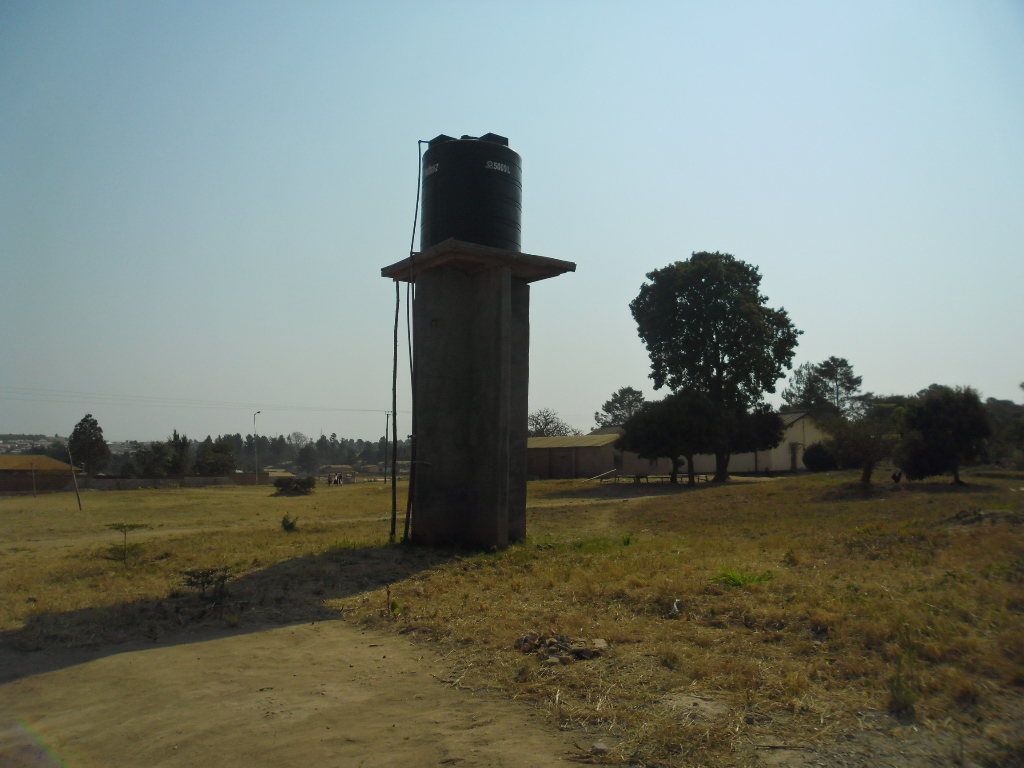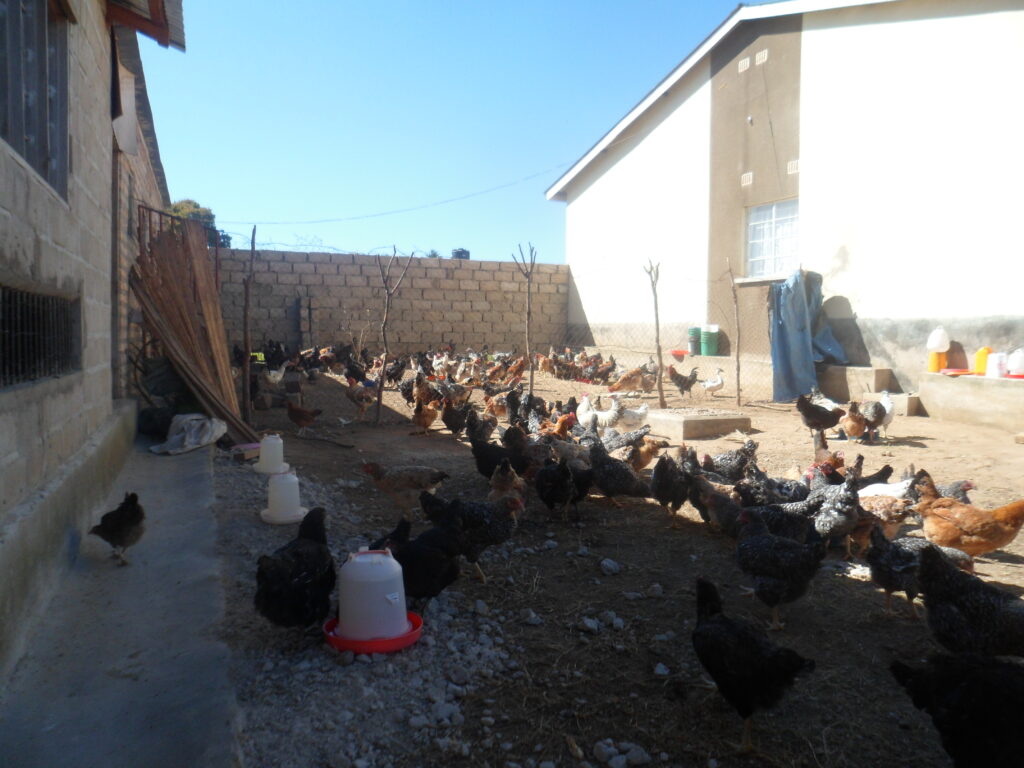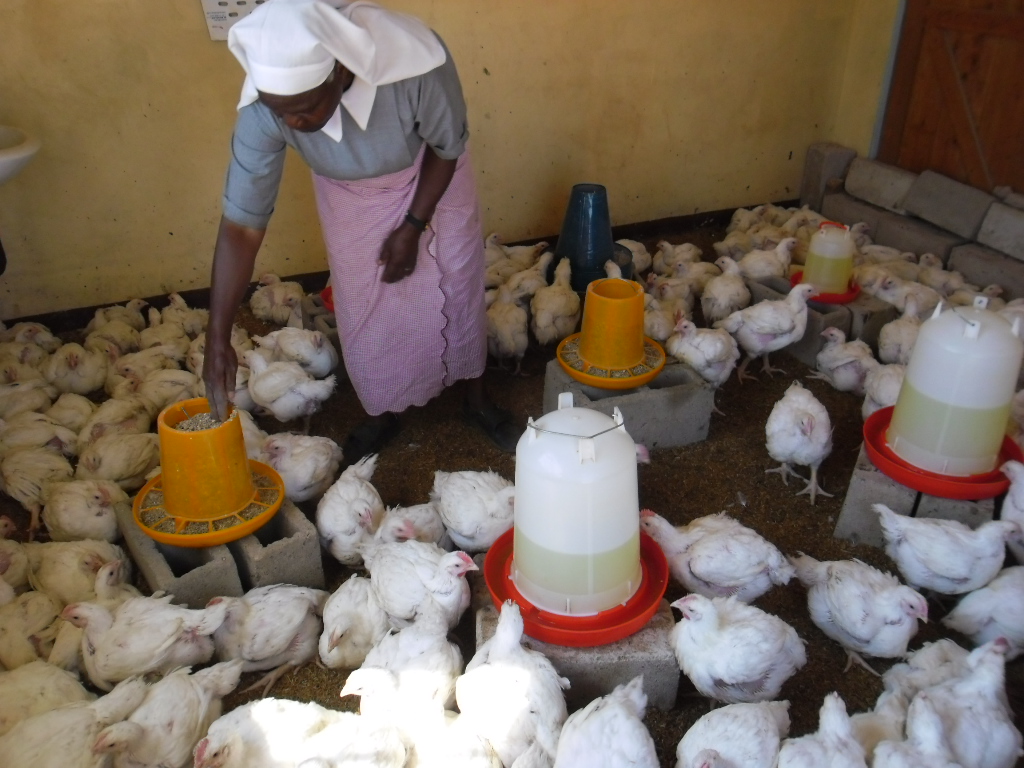Benefits
Investing in a school feeding programme produces multiple benefits:
- encourages enrolment, attendance and completion of studies
- contributes to a child’s capacity to learn
- reduces dropout rates
- reduces the number of child marriages
- promotes gender equality
- promotes local food production
Our food production
There have been many positive developments recently regarding our food production.
During our visit to Nakonde in May 2022 we purchased more farmland so we now have 18.7 hectares at MAYEMBE which is about 38 kms from Nakonde. The management of the farmland will be shared between 2 farmers. Each of the farms will have a borehole and a new farmhouse.
It will take time and hard work to develop the farms efficiently.
There is a vegetable garden and some banana trees next to the centre at St Mary’s.
The Sisters have established a successful poultry farm near the CCC which not only provides meat for the children but some chickens are also sold to generate income.
Our maize production in 2020 was 4,500kgs (100 bags, 45kgs each bag). This was a remarkable improvement on the previous year’s production which was 3,000kgs.
In 2022 production increased further with 87 bags, 120 kgs each, 10,440kgs. The maize is transformed into flour which is used to make nshima, the staple diet.
We have fish ponds near the new school at St Margaret’s plus vegetable gardens. The fish will be part of the feeding programme and a part will be sold to generate income. Lately we have bought 5 goats and hope to purchase pigs and cows in the future.
